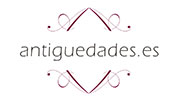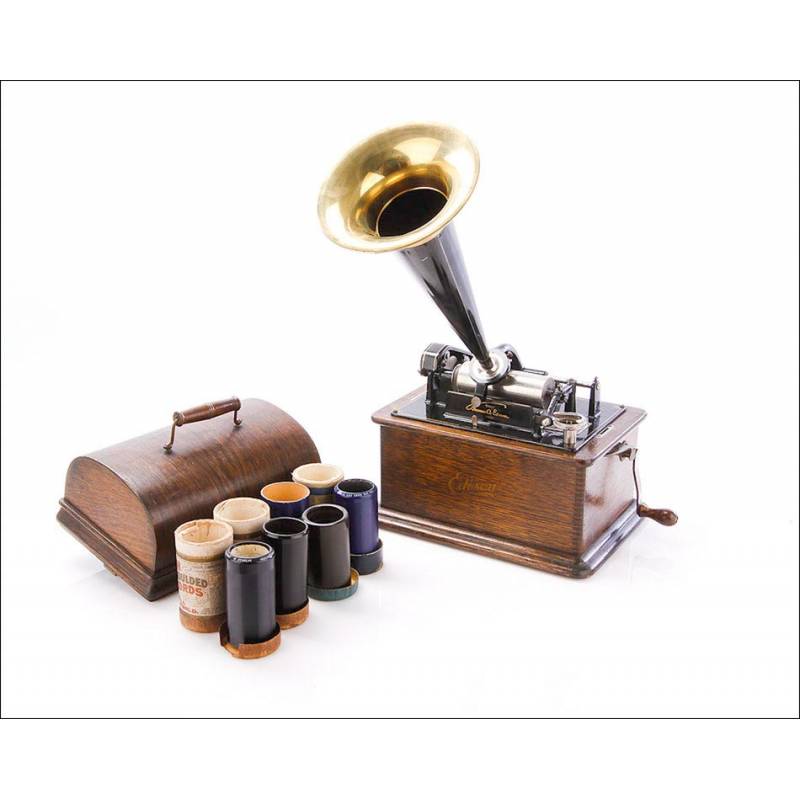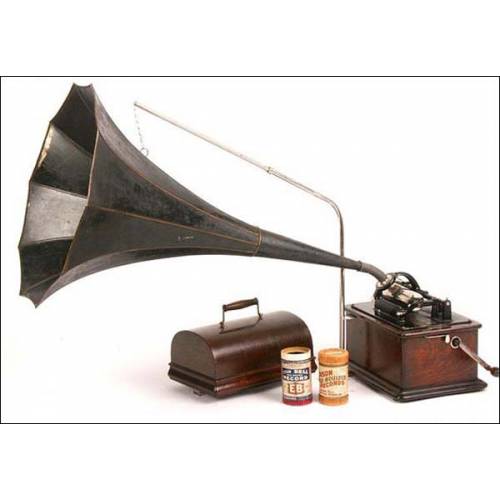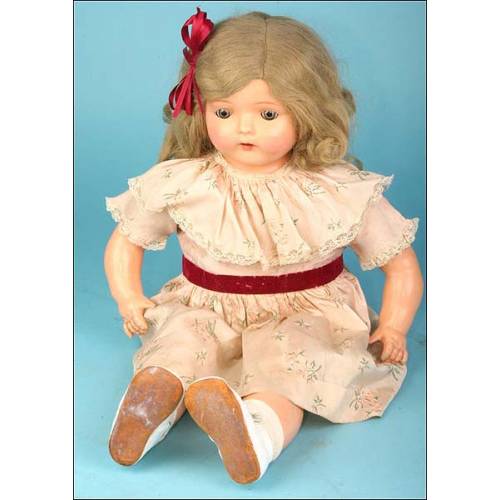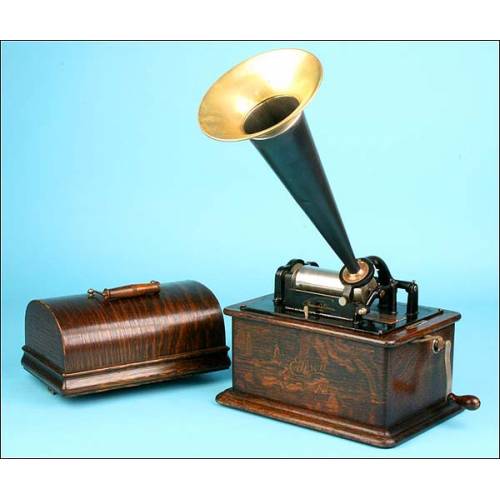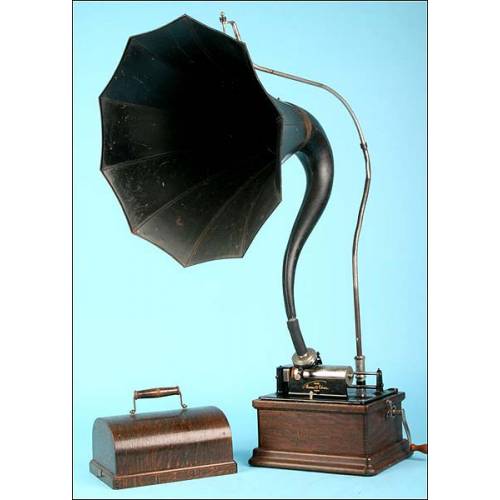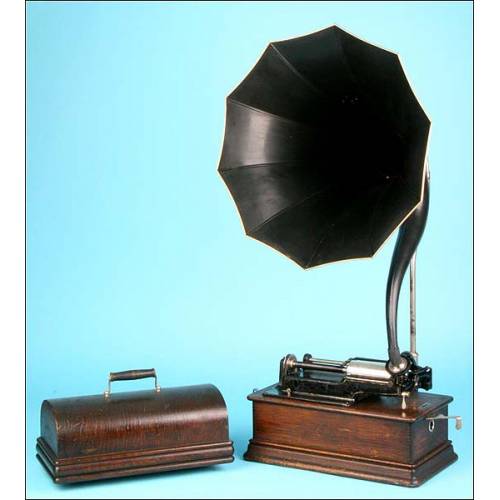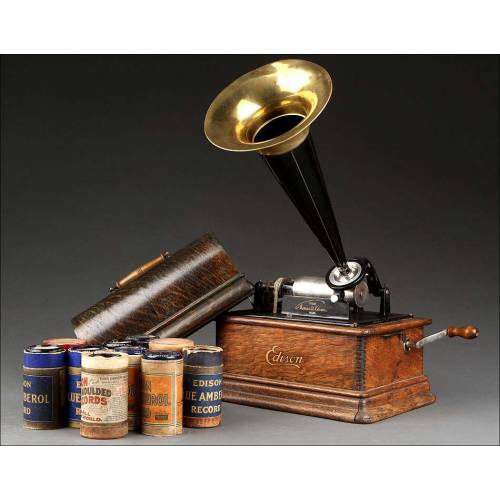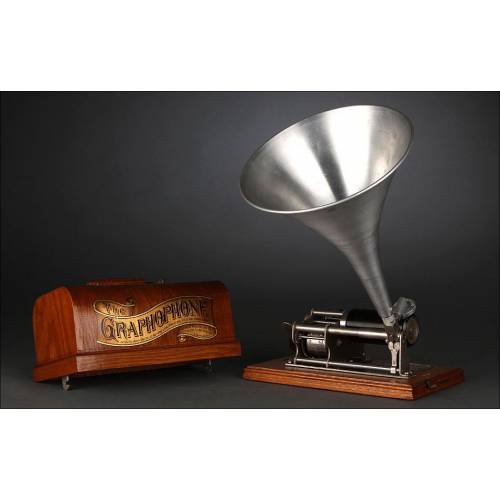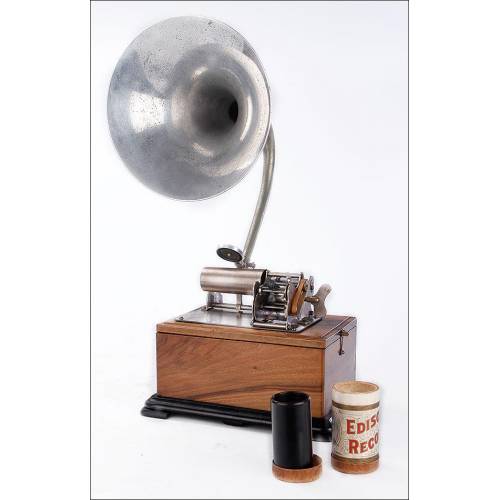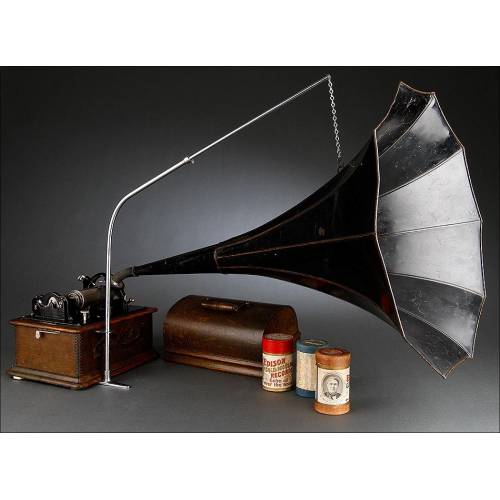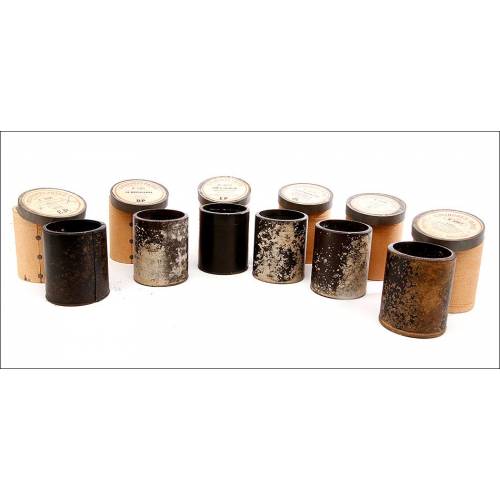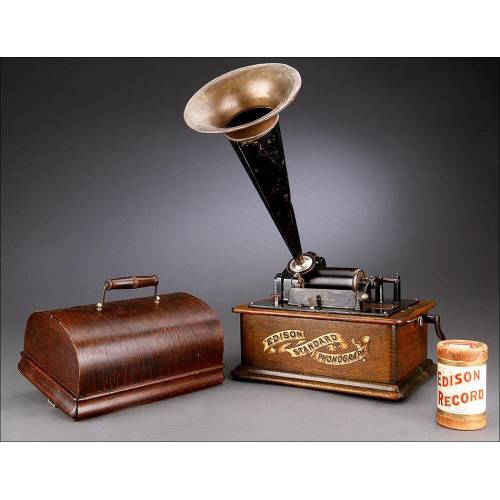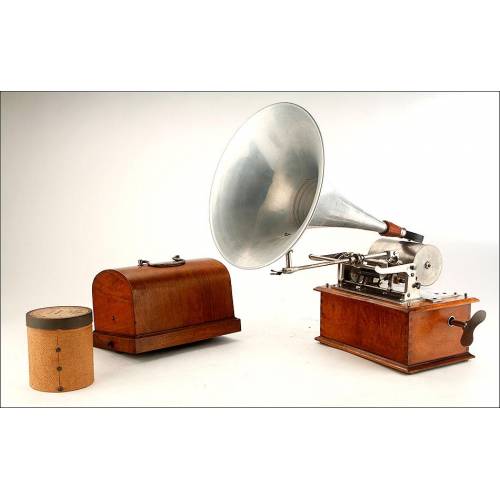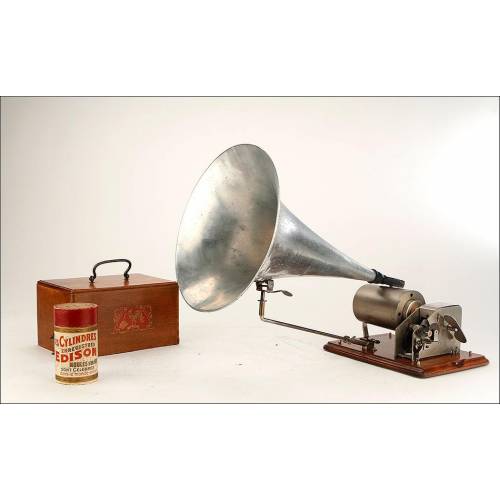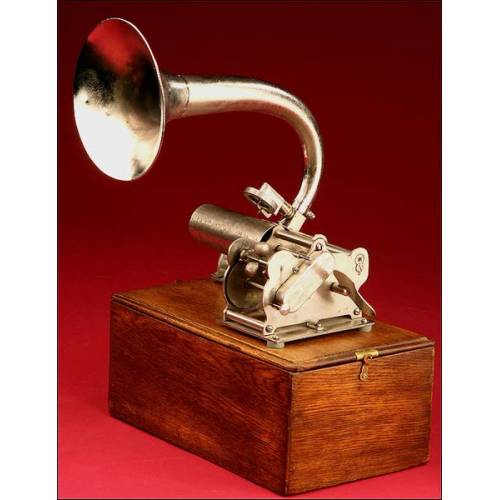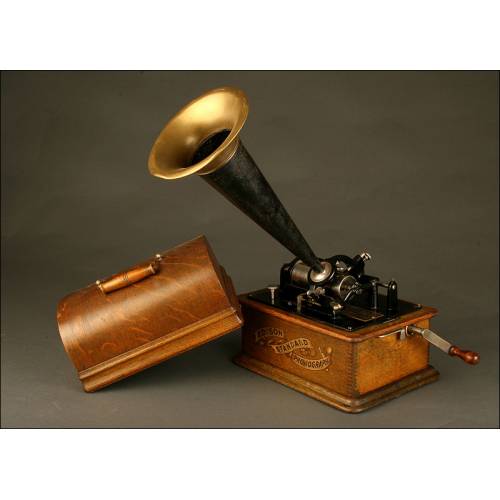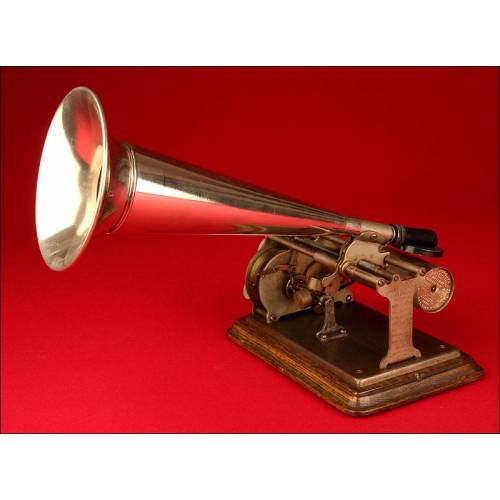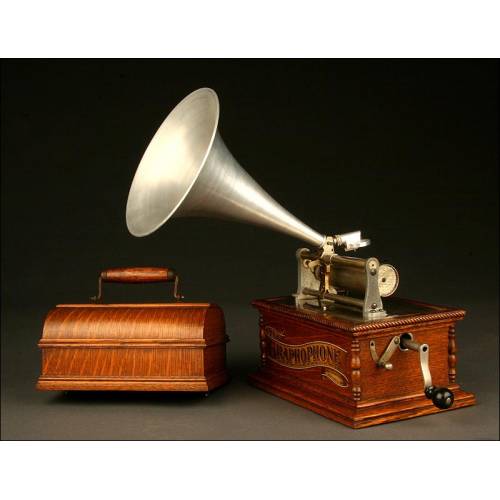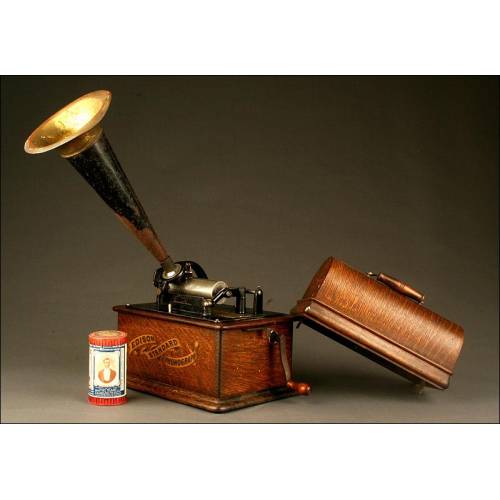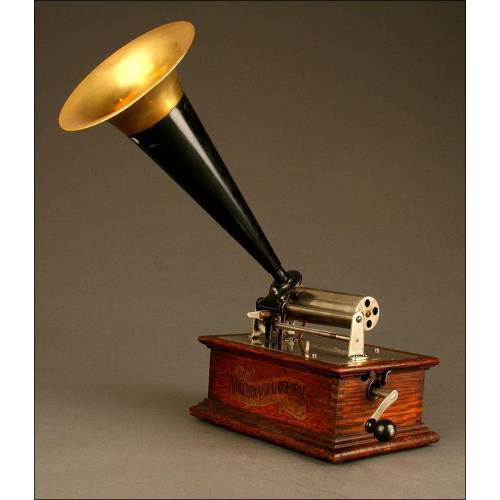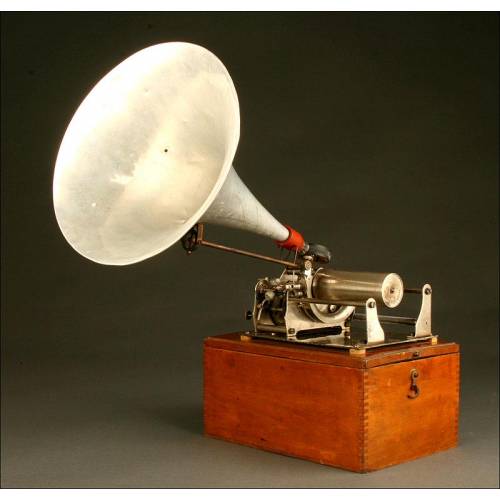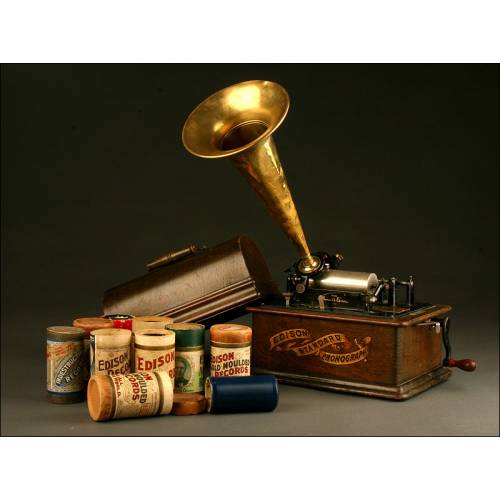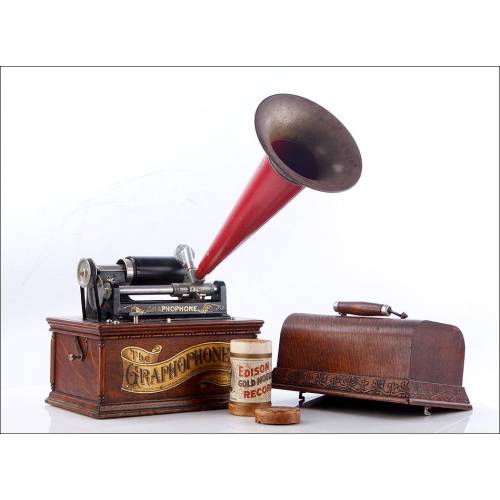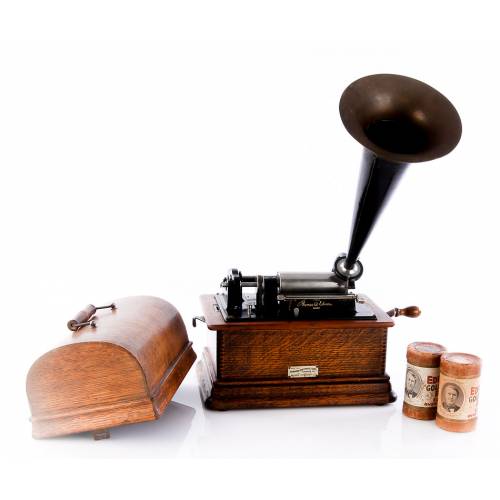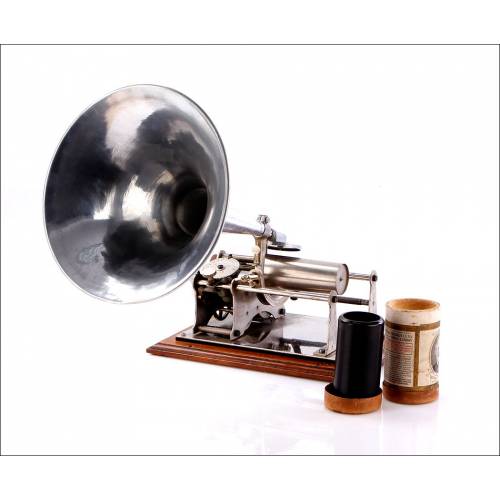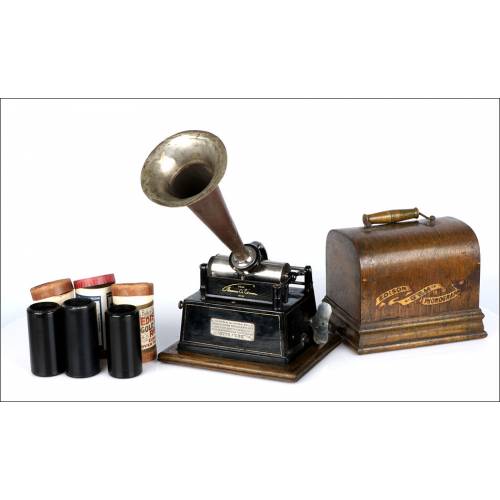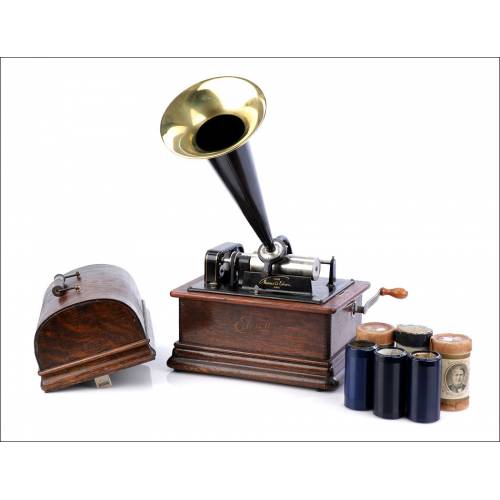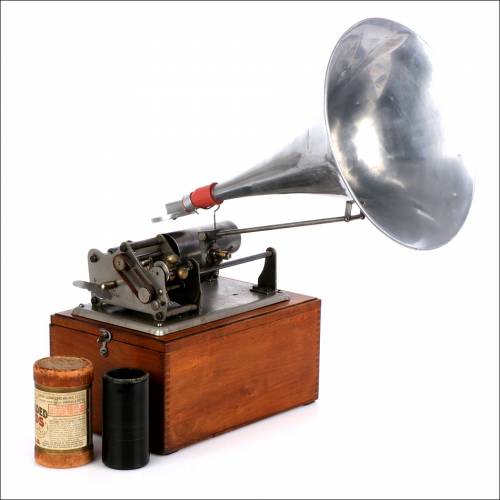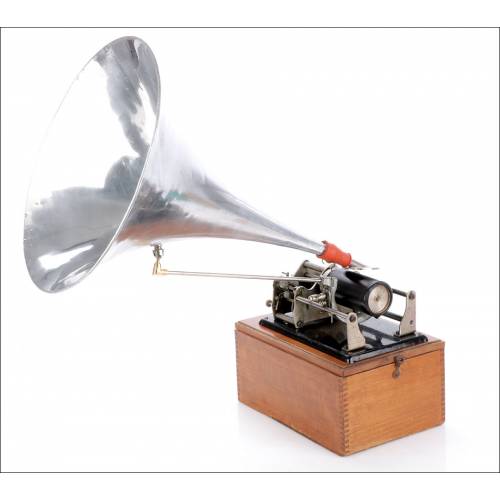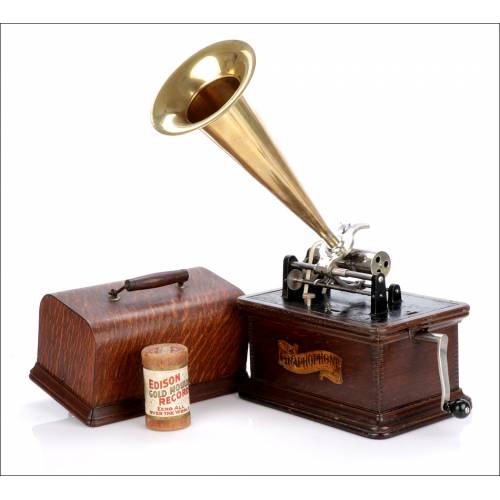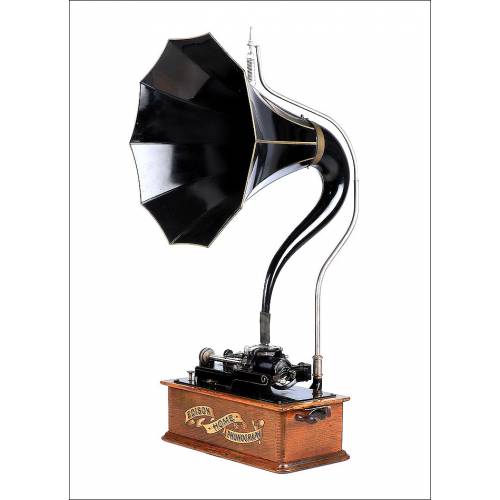C-092
Antique Edison Standard Phonograph. USA, 1905
Antique Edison Standard phonograph for 2 and 4 minutes cylinders. With 4 cylinders in perfect condition. Beautiful and working very well.
Sold!
Gorgeous antique Edison Standard phonograph for 2- and 4-minute cylinders. The phonograph was made in the USA in 1905 and comes with four perfect cylinders, two of each kind. The device shows an amazing condition, practically flawless; it has been thoroughly restored and the motor has been cleaned and tuned. This way, the phonograph boasts a wonderful look and an excellent working order. It mounts two reproducers or soundboxes: model C for 2-minute cylinders and model H for 4-minute cylinders. The reproducers and the cylinders are valuable and high-quality pieces that increase the interest of this striking phonograph. The phonographs box is made of solid oak wood and remains in optimal condition. Its surface is protected by a fine French-polish finish, warm and shiny, perfect to protect the greatly-preserved golden Edison decal. The wood is wonderfully preserved; the box comes with the original curved lid and the brass handle. The phonograph itself is made of black-lacquered cast iron; the lacquered finish is in good condition and keeps the original decal with the manufacturers signature. It also has a riveted metal plate with the patents. The enameled metal horn with brass mouth is an exceptional piece, greatly preserved too, although it is not original from the period. Last but not least, the cylinders come in their lovely original sleeves with the printed brand name and fine ancient engravings. This antique Edison Standard phonograph is an exclusive piece with a great decorative beauty which can still delight us with the nostalgic sound of the early 20th century.Edison Phonographs - History The first phonograph was developed by Thomas A. Edison as a result of his work on two existing devices: the telegraph and the telephone. In 1877 Edison decided to create a machine that could transcribe telegraphic messages through indentations on paper tape, which could later be sent over the telegraph repeatedly. He changed the paper by a metal cylinder and recorded the popular nursery rhyme Mary had a little lamb. To his surprise, the machine played his words back to him. Edison patented his invention on December 24, 1877; his first company, The Edison Speaking Phonograph Company, was founded in 1888 to exhibit the machine for commercial purposes. In 1894 he created The Edison Phonograph Company to market his phonographs. In 1894 the inventor declared bankruptcy for the North American Phonograph Company, in order to buy back the rights to his invention. Two years later he started The National Phonograph Company to manufacture phonographs for home entertainment use. The company was a success; soon, branches of the company were located in Europe. In 1910 the firm reorganized under the Thomas A. Edison Inc.; the inventor never wanted to move into manufacturing gramophone discs and kept on making cylinders. This resulted into the companys demise in 1929.
